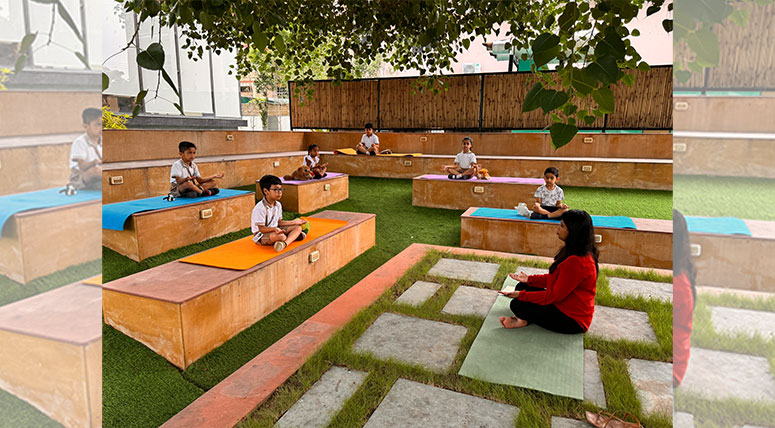Manav Rachna International-IB Continuum School focuses on educating students in a holistic manner, cultivating them as individuals beyond just academics. An important initiative that aids in this overall growth is the Personal, Social, and Physical Education (PSPE) program. The International Baccalaureate (IB) education emphasizes PSPE as essential for students’ development in personal, physical, and social aspects.
In the Primary Years Programme (PYP), PSPE is not taught separately but is smoothly combined into the curriculum. This ensures that students grasp the significance of self-awareness, social interactions, and making informed lifestyle decisions. It is essential to incorporate PSPE into the overall academic structure in order to develop students into global citizens.
PSPE Integration in Units of Inquiry
PSPE is incorporated into the curriculum at MRIS ,through collaborative planning with homeroom teachers. In the Primary Years Programme (PYP), Units of Inquiry (UOI) emphasize transdisciplinary learning by connecting key concepts such as identity, relationships, and well-being to the goals of PSPE. PSPE Curriculum in IB PYP is planned taking into consideration three broad broad strands: Identity, Active Living and Interactions which together contribute towards the wellbeing of our learners.

Source: ibo.org
While taking forward the integration with the transdisciplinary theme, ‘Who We Are’ and ‘How the World Works’, PSPE lessons incorporated mindfulness and breathing exercises to assist students in comprehending the importance of air and breathing in maintaining our health and mental well-being. While co-constructing the plans with students, they participate actively in planning and also develop a deep understanding of how all the link physical and mental well-being with the scientific study of air or body systems. Likewise, during the unit on adaptation under the transdisciplinary theme ‘Sharing the Planet’, students explored the concept of resilience as a integral component of their emotional growth, acquiring skills to adjust to obstacles and adapt to any change in both their physical and mental realms.
Collaborative planning between the PYP Coordinator, School Counselor and the Home room Advisor plays a vital role and guarantees that students undergo a unified and interconnected educational path, where their emotional, social, and physical health is closely linked to their academic development and this further leads to holistic development.
Promoting the Growth of Social and Emotional Skills
The PSPE program at MRIS is crucial in providing students with necessary social and emotional skills. By taking a
range of interesting topics, students are led to enhance their self-awareness, emotional control, ability to build relationships, and strategies for resolving conflicts—essential skills for achieving success in both their academic and personal lives.
As an example, PSPE classes that emphasize building positive connections help students understand the significance of empathy, mutual respect, and successful communication. Through developing these abilities, students acquire the knowledge of building robust, nurturing relationships with classmates, educators, and relatives, thereby establishing a welcoming and unified school setting. These lessons also promote self-reflection in students, making them aware of the influence their actions have on others, ultimately fostering personal development and responsibility. The use of common language across the community plays a very important role as all the experiences that the students undergo during PSPE sessions are explicitly mapped to Approaches to Learning(Skills) and IB Learner Profile attributes.
Another important aspect of the PSPE program is controlling emotions. Students receive support in developing skills to handle emotions like anger, frustration, and anxiety effectively to better navigate academic stress and social interactions with increased confidence and insight. Participating in mindfulness practices and meaningful discussions equips students with tools to handle emotional challenges both at school and in other areas of their lives.
In addition, teachings on conflict resolution give students the ability to handle disputes in a positive manner. Students are taught how to communicate their opinions politely, listen to different viewpoints, and discover peaceful resolutions to disagreements. These soft skills are crucial for establishing a supportive and diverse school atmosphere.
Mental Health Day Celebrations: An Array of Well-Being Events
At MRIS, student well-being and mental health are seen as fundamental elements of the school’s educational beliefs. In alignment with this priority, the school recently arranged multiple engaging events to honour World Mental Health Day on October 10th. These activities were thoughtfully planned to motivate students to actively participate in caring for their mental well-being. They were led in developing self-awareness, handling emotions, and cultivating gratitude through different activities. MRIS shows its commitment to academic excellence and students’ overall development by incorporating these initiatives into the school’s curriculum, fostering resilience and emotional well-being for the future.
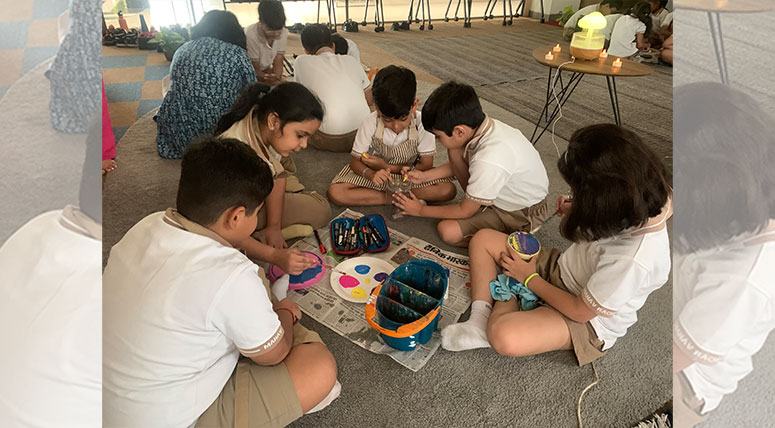
A key event was Rhythmic Yoga, in which students joined yoga sessions accompanied by rhythmic music, blending physical activity with mental awareness. By engaging in this routine, students can improve their physical health and mental acuity, leading to reduced stress levels and improved concentration.
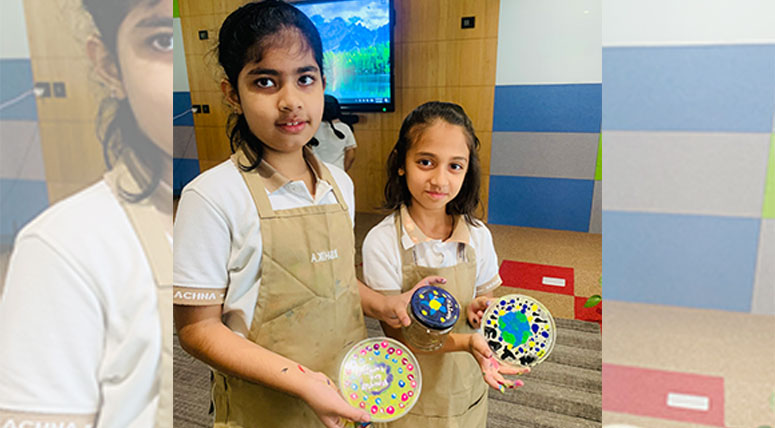
Another thrilling event was the Recycled Gratitude Lid, where students designed jar lids and penned down what they were thankful for. Every student pondered on positive memories, individual accomplishments, or acts of generosity. The lids were filled with these mindful notes, reminding us of the positive things in life and encouraging gratitude. This task prompted students to consider the significance of being grateful, fostering a supportive and positive emotional atmosphere within the school.
Likewise, students engaged in many other activities focusing on encouraging statements and methods for taking care of oneself. These activities aimed to assist students in developing self-assurance and understanding the importance of mental health for their overall health.
The Power of Reflection in PSPE
One crucial element of the PSPE program at MRIS is student self-introspection. Reflection allows students to critically analyze their learning and how it can be applied to their personal experiences. Upon finishing unit combined with PSPE, students frequently discuss their own thoughts on utilizing the teachings in their everyday lives, like opting for healthier habits, enhancing collaboration, or handling their emotions better.
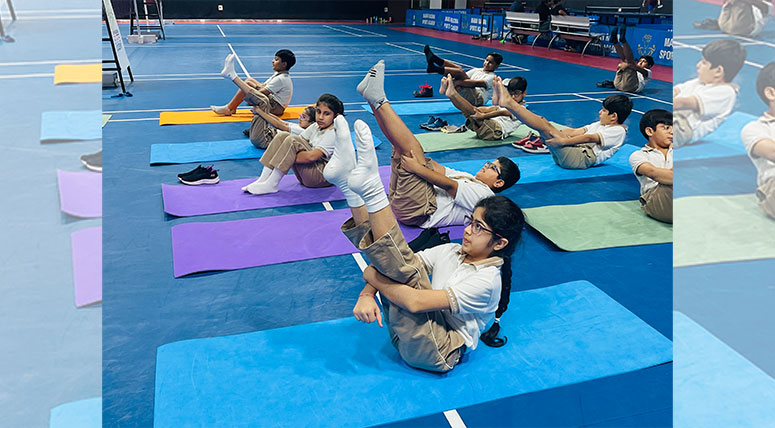
For instance, students contemplate their encounters with mindfulness strategies taught in class and how these methods assist them in handling stress. The incorporation of PSPE in the PYP has a significant impact on students. Through emphasis on personal identity, active living, and interaction, students cultivate a more profound comprehension of themselves and those around them. They understand the importance of mental health and relationship-building abilities, equipping them for the demands of a more interconnected society.
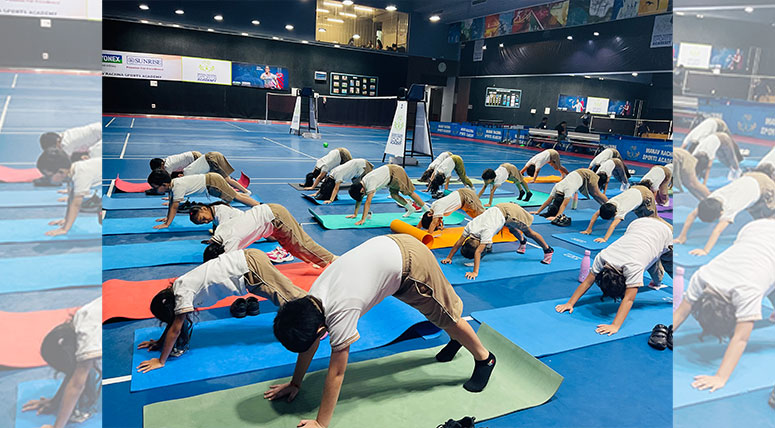
At MRIS, students often participate in reflective conversations regarding their own wellness, enabling them to identify areas for growth. The outcome is a setting where students are encouraged to take charge of their health, relationships, and emotional wellness.
Molding the Complete Individual
The central concept of the PSPE program is that we are molding the complete individual rather than just the learner. PSPE plays a crucial role in getting students ready for the demands of a world that is becoming more connected and complicated by promoting emotional growth, enhancing interpersonal skills, and nurturing physical health.
As teachers at Manav Rachna International-IB Continuum School, we are dedicated to assisting students in developing into self-assured individuals with a diverse range of abilities. With the PSPE program, our goal is to provide every student with the necessary resources to lead satisfying and successful lives, both inside and outside of school.
Ms. Roopali Shrivastava
Whole school counselor
MRIS-IB
